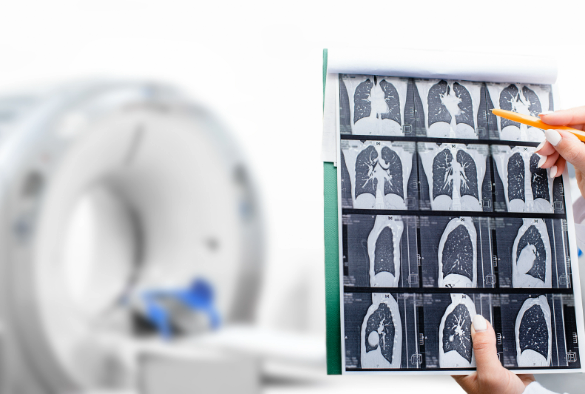Lung Cancer Study Highlights Critical Importance of Screening
Researchers from the University of Liverpool and Queen Mary University of London have published the first study in the UK to demonstrate the benefits of lung cancer screening across socioeconomic groups. Evidence in the new study illustrates the value and importance of screening, especially for those who live in areas of economic deprivation[1].
Lung cancer affects the lives of about 40,000 people a year in the UK and previous studies from Liverpool researchers illustrate the unequivocal benefit of lung cancer screening in identified high risk groups.
In a newly published Lancet Regional Health Europe paper, lung cancer researchers further demonstrate the benefits of low-dose CT lung cancer screening. The latest study illustrates lung cancer outcomes are comparable across all socioeconomic groups.
Significantly, it also demonstrates that screening may provide additional health benefits for other smoking-related diseases. The analysis showed that conditions COPD and emphysema, both of which disproportionately affect lower socioeconomic groups, were less often the cause of death when subjects received a low-dose CT scan.
Researchers examined long-term outcomes of recruited participants from across the socioeconomic spectrum. This allowed assessment of the impact of socioeconomic status on a variety of aspects, including initial recruitment, selection for screening, lung cancer detection, and long-term mortality benefit from lung cancer and other diseases. It is shown that those from a lower socioeconomic group benefited from low-dose-CT screening in terms of lung cancer survival to the same extent as those from more affluent groups. However, they were more likely to benefit in terms of death from COPD and emphysema.
Professor John Field, Professor of Molecular Oncology, University of Liverpool and lead author on the paper said: “The impact of low-dose CT lung cancer screening has been previously demonstrated in a number of international clinical trials, including the UKLS study here in the UK. However, this is the first time that the long-term impact of risk-stratified lung cancer screening has been compared across different socioeconomic groups, demonstrating that those disadvantaged groups at the greatest risk of developing the disease benefit as much as those in less deprived areas.”
Dr Chris Warburton, Respiratory Consultant at Liverpool University Hospitals NHS Foundation Trust and Clinical Lead for the Targeted Lung Health Check Programme for the NHS Cheshire and Merseyside Cancer Alliance said: “This is excellent data which demonstrates that lung cancer screening of high risk populations not only delivers benefits in lung cancer outcomes for the most deprived in our society, but it could also have wider beneficial effects on other smoking related diseases such as COPD and cardiovascular disease. The Cancer Alliance would encourage anyone offered a Lung Health Check to attend this important appointment which might just help to prolong their life.”
Professor John Field worked with Dr Michael Davies, from the University of Liverpool’s Institute of Systems, Molecular & Integrative Biology, and Daniel Vulkan, Professor Rhian Gabe, and Professor Stephen Duffy, from the Wolfson Institute of Preventive Medicine, Queen Mary University of London.
Professor Stephen Duffy said: “These results indicate the potential for lung cancer screening to address some serious inequalities in health. As the targeted programme is rolled out nationally, we need to make an effort to deliver the service to those deprived populations who need it most.”
The UKLS study was funded by the Health Technology Assessment programme of the National Institute for Health Research (NIHR). Dr Michael Davies is a Roy Castle Lung Cancer Foundation Senior Research Fellow. Daniel Vulkan’s and Professor Stephen Duffy’s contributions to this research were funded by the NIHR Policy Research Programme.

